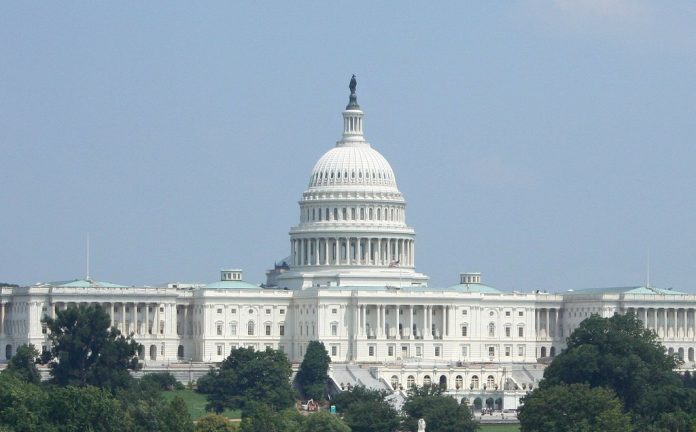Early last November, two months before Republicans took control of the U.S. House of Representatives, Pennsylvania’s Glenn Thompson, the incoming chairman of the House Ag Committee, laid down an old GOP marker as one of his upcoming committee goals.
The soon-to-be-anointed ag boss, as previously noted in this space, “believes SNAP, the Supplemental Nutrition Assistance Program, needs ‘work and job training’ requirements ‘for certain beneficiaries.’”
“Yes, that old ‘no work-no SNAP’ idea,” I wrote, “rejected in the 2018 Farm Bill debate, will likely see its reprise under Thompson.”
Sure thing
And it did on April 17, reported Politico, when House Speaker Kevin McCarthy outlined “broad moves to restrict food assistance for millions of low-income Americans” as a key element in his “new debt limit negotiating proposal” with the White House.
Truth be told, betting that House Republicans will push for deep cuts to SNAP, the old Food Stamp program, every year — any year, really — is like guessing the rooster will crow at dawn. It’s a slam dunk; bet the farm.
Many of McCarthy’s Republican allies in Congress, however, welcomed his SNAP trial balloon like it was a Chinese spy balloon. “‘I’m sure it won’t be easy,’ said John Thune (S.D.) the No. 2 Republican in the Senate.”
Wall Street, McCarthy’s chosen site for his big deficit/big budget speech, yawned at its no-surprise contents. The three major stock indices — the Dow Jones, Nasdaq, and S&P 500 — each ended the day with sleepy, 0.3 of one percent gain.
Capitol Hill pros, however, weren’t as disinterested. One “GOP Senate aide,” Politico noted, “… was less diplomatic [than Thune]: ‘I mean, Godspeed … We’re going to live in reality over here” in the Senate, he offered.
Moreover, “Senate Democrats have said such measures are dead on arrival in the upper chamber” and, to ensure it, they will also have the “… help of key Senate Republicans.”
They won’t be the only Republicans running from Speaker McCarthy’s pruning saw. “Taking a tough line would please the most conservative GOP members,” Politico explained, “but alienate Republicans from swing districts, and vice versa.”
Gambit
Currently, there are 18 House Republicans that hail from congressional districts won by President Joe Biden in 2020. Given McCarthy’s paper thin, five-seat House majority, anything that threatens the reelection of a handful of them, threatens McCarthy’s debt and budget proposals as well as his political future.
And everyone — McCarthy, his swing district members, the White House, and Congressional Dems —know it.
Which goes to the heart of what McCarthy hopes to do with his SNAP-cutting gambit: Since the House GOP has no workable plan to raise the nation’s debt ceiling or pass a 2024 federal budget, McCarthy is dancing — buying time — while his caucus cobbles together plans to challenge the White House on both fronts.
It’s a high-wire act in a hurricane.
First, McCarthy faces a fast-approaching, mid-June deadline to pass a debt ceiling plan. Second–amid constant White House needling–he also needs a 2024 budget plan. Third, Dems hold both the upper hand and upper chamber in debt and budget talks and will kill any House plan deemed too restrictive.
Also, few House and Senate leaders believe delaying the debt fight until 2024, a presidential election year, is a good idea.
Farm Bill
There’s another new reason, too: Nearly every farm and commodity group — even the most politically conservative of them — keenly understands it must give SNAP its full-throated support if farmers hope to influence a favorable 2023 Farm Bill.
That simple fact was on display “at a farm bill listening session” in “an upstate New York district” April 14 where, reported Politico, “local farmers, food bank operators and anti-hunger advocates urged lawmakers to defend and even expand current SNAP programs.”
Importantly, one of the witnesses was the “vice president of the New York branch of the American Farm Bureau Federation” who “told the lawmakers … not to think of SNAP as a ‘city thing,’ noting that the program is a key lifeline to low-income Americans in rural areas where food insecurity ‘is higher than it’s ever been.’”
That’s wise advice for any wannabe successful politician, Republican or Democrat.














